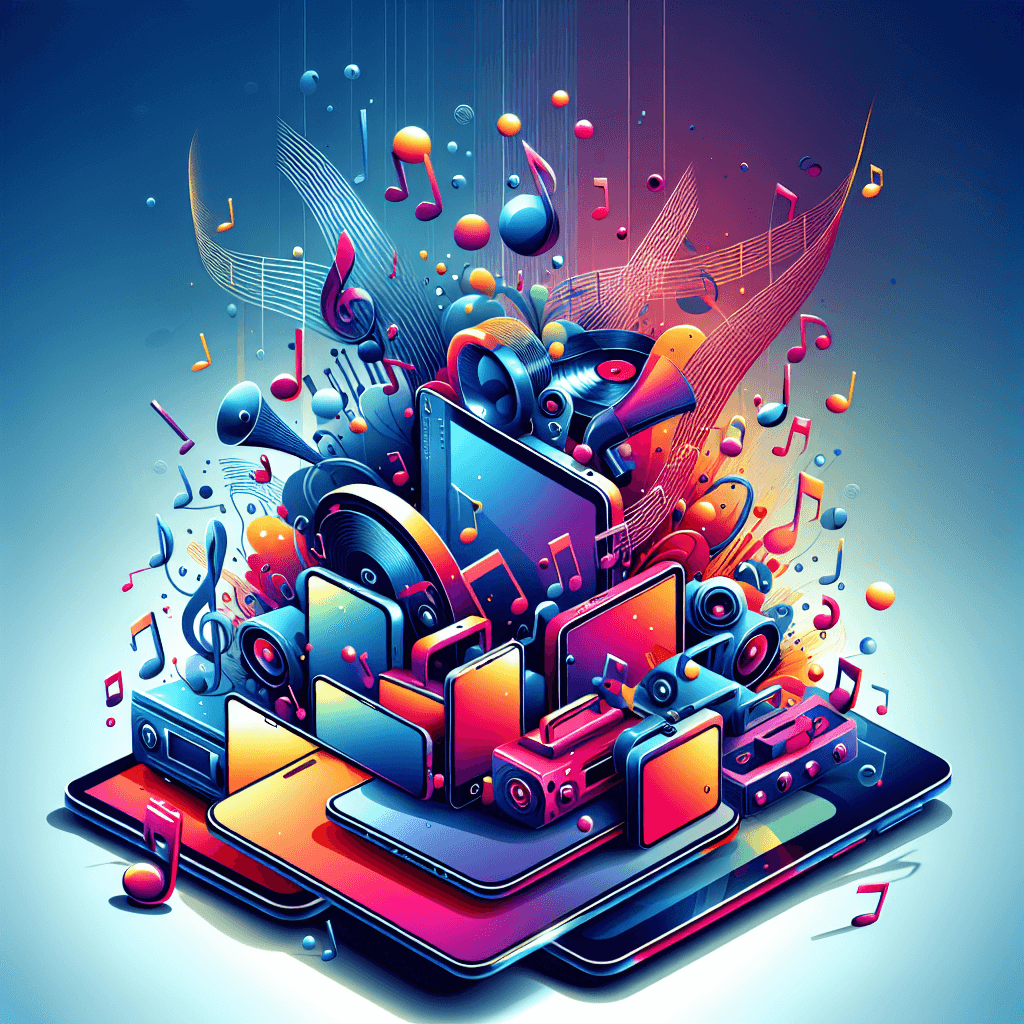Tech's Tune: Rewriting the Music Industry's Soundtrack.
The music industry, once a realm ruled by record labels and physical distribution, is undergoing a seismic shift. The tectonic plates of technology are moving, reshaping the landscape, and composing a whole new tune. This is tech's remix, and the melody is one of democratization, accessibility, and unprecedented opportunity.
Gone are the days when artists were beholden to gatekeepers for their big break. The internet, with its global reach, has smashed those gates wide open. Platforms like YouTube, Spotify, and SoundCloud have become the new stages, giving artists direct access to a global audience without needing a record deal. This direct-to-fan relationship is revolutionizing the industry, empowering artists to take control of their careers and connect with their listeners on a deeper level.
But the technological symphony doesn't end there. Artificial intelligence, often perceived as a futuristic fantasy, is already orchestrating change in the here and now. AI-powered tools are being used to refine every stage of the music-making process, from composition and production to marketing and distribution. Imagine algorithms that can analyze musical trends, predict hits, and even personalize song recommendations based on individual listening habits. This isn't science fiction; it's the new reality of music creation and consumption.
Here's how this tech-driven melody is playing out:
1. The Democratization of Music Production: Sophisticated recording studios are no longer a prerequisite for creating high-quality music. Affordable, user-friendly software and digital audio workstations (DAWs) have put the power of production into the hands of aspiring musicians everywhere. This has led to an explosion of independent artists, blurring the lines between amateur and professional and enriching the global music scene with diverse voices.
2. The Rise of Virtual Concerts and Metaverse Experiences: The pandemic may have pressed pause on live music, but it also accelerated the adoption of virtual concerts and immersive experiences. Artists are now exploring virtual reality and augmented reality to create captivating performances that transcend physical limitations. This opens up new avenues for fan engagement, allowing artists to connect with global audiences in entirely new ways. Imagine attending a concert in the metaverse, interacting with your favorite artist and fellow fans in a shared virtual space—the possibilities are truly limitless.
3. Blockchain's Harmonious Influence: Perhaps one of the most disruptive technologies impacting the music industry is blockchain. This decentralized, transparent ledger system is poised to revolutionize music rights management and royalty distribution. By creating a secure and immutable record of ownership and usage, blockchain can ensure that artists are fairly compensated for their work. Smart contracts can automate royalty payments, eliminating the need for intermediaries and empowering artists to retain greater control over their earnings.
4. The Power of Personalized Learning: Aspiring musicians, producers, and industry professionals can now access a wealth of knowledge and resources online. From online courses and tutorials to interactive learning platforms, technology is making music education more accessible and personalized than ever before.
This technological transformation is not without its challenges. Copyright infringement, data security, and the ethical implications of AI are just a few of the issues that need to be addressed. However, the potential benefits far outweigh the risks. By embracing these advancements and navigating the challenges responsibly, we can create a more equitable, innovative, and vibrant music industry for creators and fans alike.
Ready to hit the high notes in the evolving music industry?
Explore courses and resources on 01TEK and learn how you can harness the power of technology to compose your own success story.
Don't waste your life in doubts and fears: Spend yourself on the work before you, well assured that the right performance of this hour's duties will be the best preparation for the hours or ages that follow it.
Ralph Waldo Emerson



